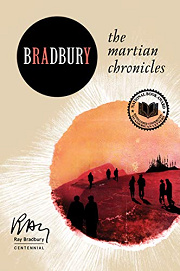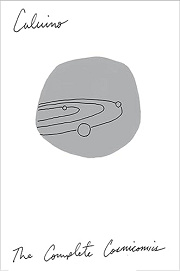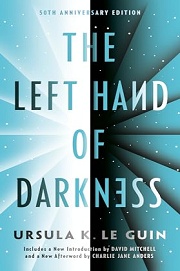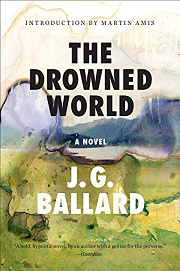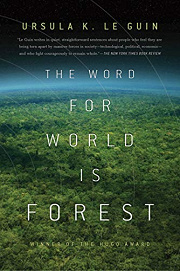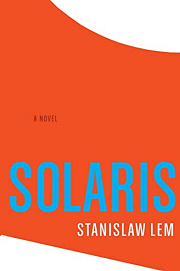Share your thoughts in a quick Shelf Talk!
The Martian Chronicles by Ray Bradbury
From rocket towns to Martian deserts, a tapestry of linked tales charts humanity’s longing for new horizons—and the ghosts we carry with us. Lyrical and haunting, The Martian Chronicles turns colonization into a mirror for our dreams, follies, and fragile hope.
Have you read this book? Share what you liked (or didn’t), and we’ll use your answers to recommend your next favorite read!
Love The Martian Chronicles but not sure what to read next?
These picks are popular with readers who enjoyed this book. Complete a quick Shelf Talk to get recommendations made just for you! Warning: possible spoilers for The Martian Chronicles below.
In The Martian Chronicles, did you enjoy ...
... lyrical, loosely linked vignettes that telescope vast epochs into intimate, human moments?
Cosmicomics by Italo Calvino
If the mosaic structure of Bradbury’s Mars—jumping from “Ylla” to “—And the Moon Be Still as Bright” to “There Will Come Soft Rains”—swept you along, you’ll love the way Cosmicomics strings together playful, standalone tales narrated by Qfwfq. Like Bradbury’s snapshots of settlers and Martians, Calvino distills cosmic-scale ideas into tender, witty episodes—whether leaping to the Moon in “The Distance of the Moon” or chasing the first signs of life through eons—with the same wistful, imaginative sparkle.
... culture-first planetary SF that favors anthropology and ethics over tech?
The Left Hand Of Darkness by Ursula K. Le Guin
If what gripped you was how Bradbury centers people—the telepathic Martians of “Ylla,” Spender’s moral crisis in “—And the Moon Be Still as Bright,” the settlers’ loneliness—then The Left Hand of Darkness will resonate. Le Guin’s envoy Genly Ai must navigate Gethen’s gender-fluid society and, with Estraven, cross the Gobrin Ice; the drama lives in culture, language, and trust rather than gadgets, echoing Bradbury’s soft-science focus on hearts and habits over hardware.
... dreamlike, allegorical SF where the altered world mirrors inner states and history?
The Drowned World by J. G. Ballard
If you admired how “There Will Come Soft Rains” and “The Long Years” turn landscapes and relics into symbols of human hubris and yearning, Ballard’s fever-dream of flooded London will hook you. Following Dr. Kerans through sun-blasted lagoons and prehistoric dreams, The Drowned World uses its setting as living allegory—much like Bradbury’s Mars, where canals and empty cities reflect the rise and fall of civilizations and the ghosts we carry.
... a human colonization story that confronts conquest, exploitation, and cultural erasure?
The Word For World Is Forest by Ursula K. Le Guin
If Spender’s revolt and the tragic clashes in “—And the Moon Be Still as Bright” and “The Off Season” drew you to Bradbury’s critique of colonization, Le Guin’s novella sharpens that lens. On Athshe, logger Davidson embodies the brutality of occupation while Selver leads the forest people to resist. The moral reckoning around language, land, and domination mirrors Bradbury’s stark warning about what humans bring with them when they settle new worlds.
... meditative first-contact that probes memory, guilt, and the limits of understanding?
Solaris by Stanislaw Lem
If the haunting final note of “The Million-Year Picnic” and the melancholic encounters with Martian otherness stayed with you, Solaris deepens that philosophical pull. Psychologist Kris Kelvin reaches a station above a sentient ocean that manifests his lost lover, Hari; every attempt to communicate reveals more about human memory and responsibility than about the alien. It’s the same introspective wonder Bradbury evokes—asking what space reveals about us.
Unlock your personalized book recommendations! Just take a quick Shelf Talk for The Martian Chronicles by Ray Bradbury. It’s only a few questions and takes less than a minute.
